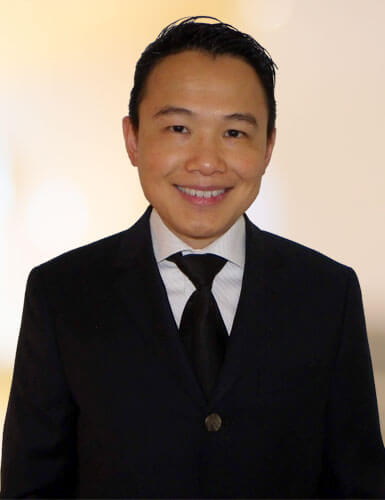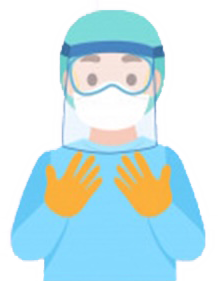Velscope VX Oral Cancer Screening tool now available!
Posted: October 3, 2016
Last Modified: December 18, 2018
We at Dr. Elston Wong Dentistry are proud to introduce the awesome Velscope VX, a handheld light that allows users to detect changes in oral skin tissue way before such changes may be detectable to the naked eye. It is useful as an oral cancer screening tool (and other dysplastic epithelium) and has even won a WHO award as “An Innovative Device that Addresses Global Health Concerns”.
Here’s a picture of the product, courtesy of LED Dental, the company that developed this device:
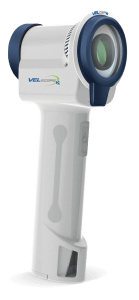
Why is this a useful tool?
Epithelial dysplasia is a vague term describing precancerous changes to the skin (and in this case, the skin of the mouth). Left to develop into more and more severe dysplasia, tissues changes can ultimately turn cancerous. Unfortunately, early changes to the tissue usually occur below the surface of the skin, and as a result, often go undetected. An oral cancer detected at a late stage has a 5-year survival rate of about 50%.
The Velscope VX light is an easy-to-use, painless and non-invasive method of picking up dysplastic tissues that takes advantage of a normal tissues ability to fluoresce when shone with a certain wavelength of light. In the case of the Velscope, an intense blue (not ultraviolet; we’re not trying to give you cancer) light is shone at the oral tissues, and normal tissues will fluoresce back an apple-green light. Abnormal tissues do not fluoresce, so areas of darkness are areas of suspicious tissue. Here’s an illustration, again courtesy of LED Dental Inc. of how this baby works:
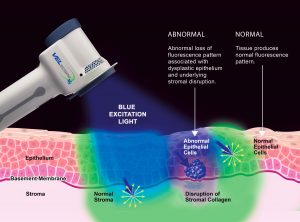
When will we use it?
Our goal is to use the Velscope VX on every adult patient (and even children, if warranted) at least once a year. After a routine oral examination (you know, the one that we do on you just before we check for cavities and gum disease), we will add the use of the Velscope VX. In addition, any time we see a suspicious oral lesion, we will use it. Note that this device does not diagnose cancer, it just shows tissues that are potentially abnormal. If we see such an area, we will typically use it again two weeks later. If that tissue is still not fluorescing like normal tissue, a biopsy will be required to definitively diagnose the lesion. This exam takes less than 1 minute.
This is what the mouth tissues look to the naked eye:
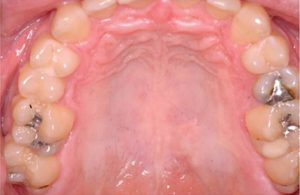
This is the same mouth under the Velscope VX light:
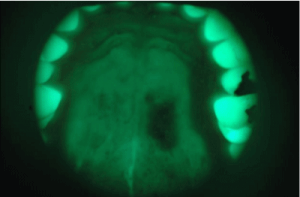
However, it is important to repeat that just because an area does not fluoresce, it does not mean it is cancerous. It just means that it may be cancerous, but dark areas can also be the result of bleeding in an area.
How much does it cost?
We believe in oral cancer screening for all, so a nominal increase in exam fees will cover exams for all patients. Read: we are increasing our fees for everyone so that everyone can benefit. Last thing we want is to have someone balk at the cost and then miss out on a potentially life-saving finding.
Contact us for more information. We’ve always checked for signs of oral cancer during our regular exams, and now we have an additional tool in our toolbox! We’d love to be your dentist in Barrie.

